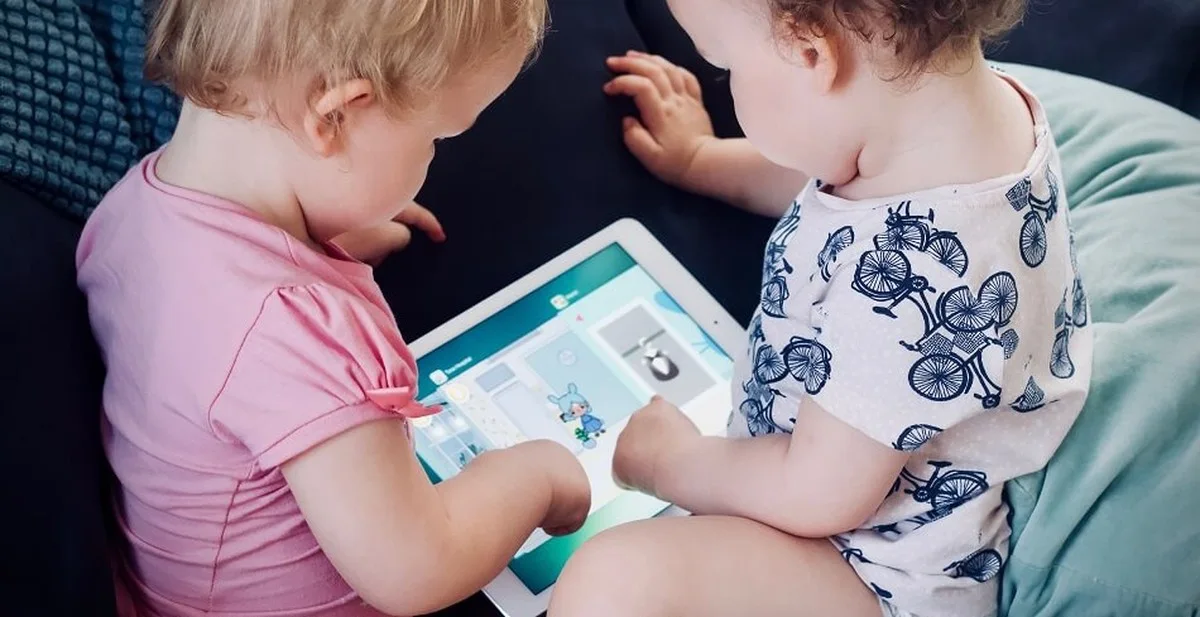20/01/2025
20/01/2025

LONDON, Jan 20: A study has revealed that children under two who spend more than one and a half hours a day watching TV or using the internet tend to have weaker language skills and are more prone to misbehavior by the age of four and eight.
In this groundbreaking research, academics tracked over 6,000 children from ages two to eight to study the impact of exceeding the recommended screen time limit for toddlers aged two to five, which is set at no more than one hour a day. While this is the recommended maximum by health authorities, many British children aged two spend over two hours daily on screens, including TV, computers, or smartphones. According to the online regulator Ofcom, one in five children already owns a smartphone by the age of two.
The peer-reviewed study, conducted by researchers at the University of Canterbury in New Zealand, found that children who spent more than 90 minutes on "direct screen time" daily were significantly behind in language development, including vocabulary, communication, writing, numeracy, and letter fluency, by the age of 4.5 and eight. These children also exhibited poorer social skills and were more likely to experience "peer problems," such as playing alone, being less liked by peers, showing less consideration for others, and sharing less.
Children who spent more than 2.5 hours a day on screens performed even worse. In contrast, children who adhered to the internationally recommended limit of one hour a day showed better language skills, higher education levels, fewer behavioral issues, and were more sociable by the time they reached ages four and eight.
The study found that the effects of excessive screen time were noticeable by age eight, with children who exceeded the limit more likely to be in the bottom third of their class educationally. Without the excessive screen exposure, these children might have been in the bottom half instead. "We found a linear relationship between screen time and developmental outcomes, with the most significant effects seen at the highest levels of exposure," said Megan Gath, one of the researchers.
The report also highlighted that the increasing amount of screen time among children was contributing to the decline in school readiness. Teachers have observed that children entering school at age five now possess lower language, educational, and social skills than in the past. "Screen time during early childhood is predictive of the skills children have when they start school, and the rise in screen use may partly explain why school readiness has been declining in recent years," the researchers noted.
In addition to the educational impact, the study also highlighted the health risks associated with excessive screen time, such as higher rates of obesity, illness, and more frequent doctor visits, due to the increased sedentary behavior.
Reducing screen time could significantly improve both children’s educational and health outcomes. "Given the prevalence of screen media in children’s lives and the fact that usage can be easily adjusted, the public health impacts are likely to be substantial," the researchers stated in the report, published in Developmental Psychology.
The World Health Organization (WHO) guidelines recommend no screen time for children under two and less than one hour per day for children aged 2 to 5. Despite these recommendations, studies show that up to 80% of two-year-olds and 95% of three-year-olds worldwide are engaging with digital screens beyond the recommended levels.
In the UK, the Online Safety Act has been introduced to protect children from harmful online content, focusing on what children see and experience online, rather than the amount of time they spend on screens. However, tech companies, responding to pressure from the government and regulators, have begun to introduce measures to limit technologies that keep children online longer, such as alerts, algorithms, and endless scrolling features.


